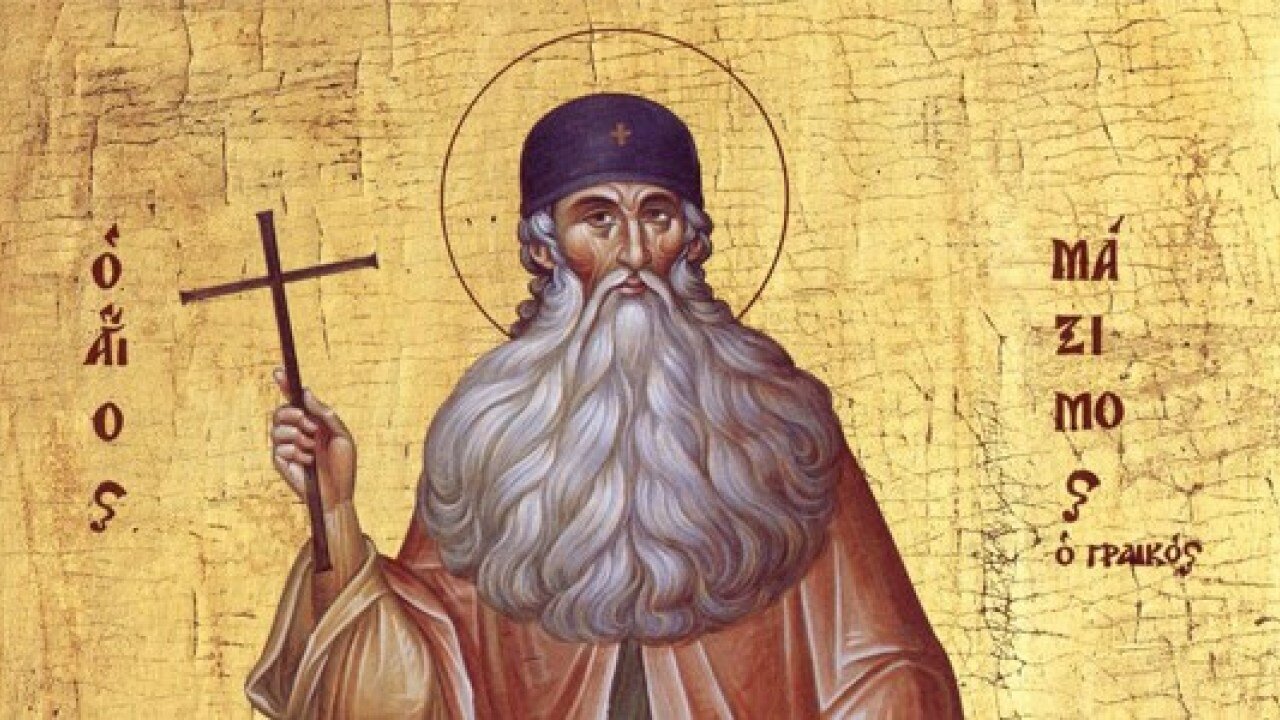He was born to a noble family in Constantinople in 580. (But, according to a recently-discovered account, he may have been born in Palestine.) He showed uncommon piety and depth of theological understanding from an early age, and wrote some of the Church's most profound theological works. He became the chief secretary of the Emperor Heraclius and his grandson Constans. But when the Monothelite heresy took hold in the royal court, Maximos could not bear to be surrounded by this error and left for the Monastery at Chrysopolis, where he later became abbot. From the monastery, he battled Monothelitism in homilies and treatises that exercised a considerable influence; so much so that the Emperor Constans ordered him either to accept Monothelite belief or keep silence. Maximos refused to do either, and he was arrested. His tongue was torn out, his right hand cut off, and he was sentenced to exile. He died of his wounds and torments while still in prison awaiting deportation, at the age of eighty-two, in the year 662. The Great Horologion comments that "at that time only he and his few disciples were Orthodox in the East." Nonetheless, his lonely and costly stand, whose fruit he did not see in his own lifetime, preserved the Orthodox Faith when emperors and patriarchs alike had fallen away. Saint Maximos' right hand is venerated today at the Monastery of St Paul on Mt Athos.
Back to All Events
Earlier Event: January 19
Sunday Divine Liturgy
Later Event: January 26
Sunday Divine Liturgy

